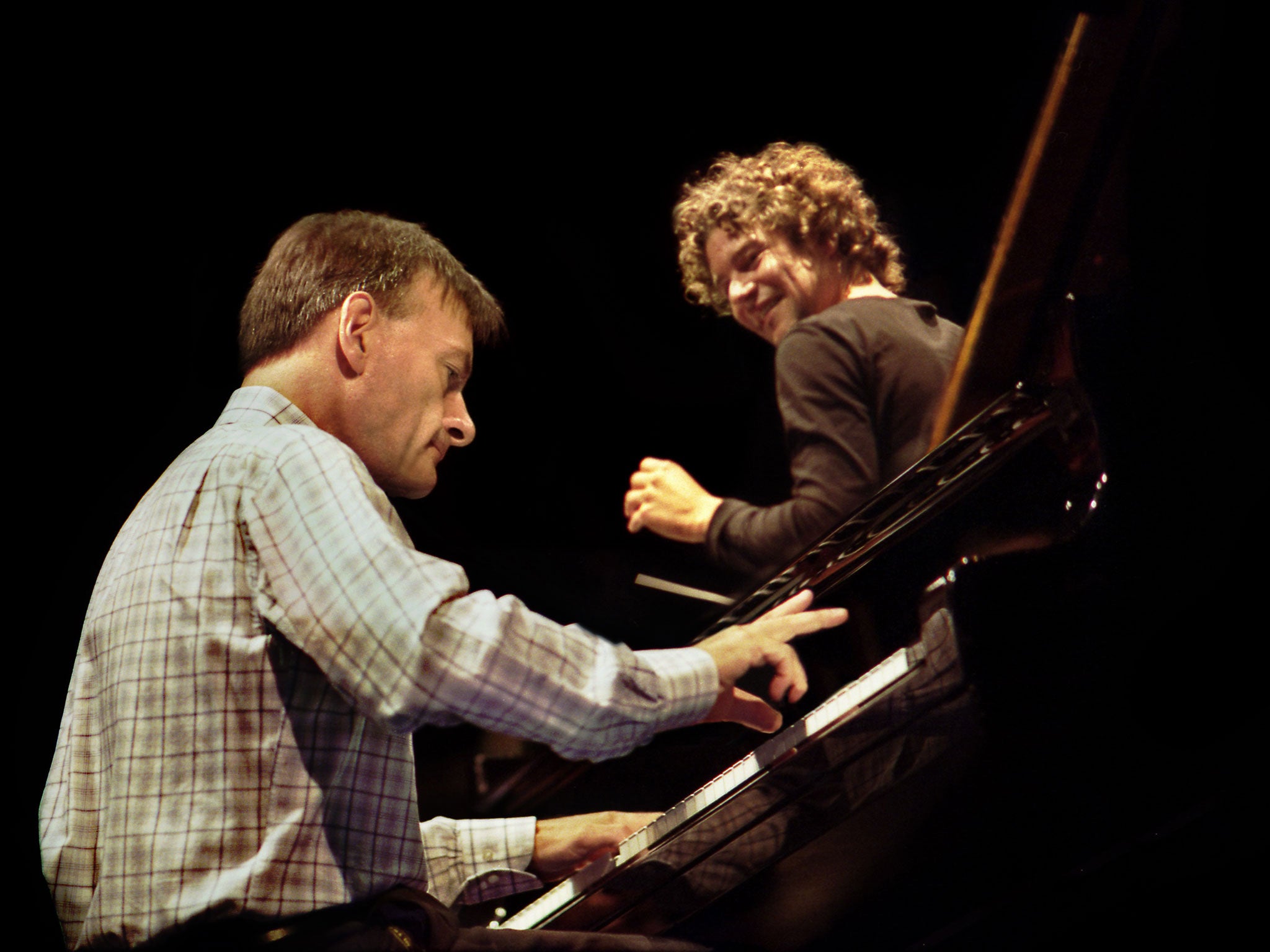Classical review: Prom 49 - Bad parenting has rarely been portrayed with such delicacy or such pummelling power
A fleet performance of the German master’s Third Symphony offers a reminder of its revolutionary impact, two centuries on

Your support helps us to tell the story
From reproductive rights to climate change to Big Tech, The Independent is on the ground when the story is developing. Whether it's investigating the financials of Elon Musk's pro-Trump PAC or producing our latest documentary, 'The A Word', which shines a light on the American women fighting for reproductive rights, we know how important it is to parse out the facts from the messaging.
At such a critical moment in US history, we need reporters on the ground. Your donation allows us to keep sending journalists to speak to both sides of the story.
The Independent is trusted by Americans across the entire political spectrum. And unlike many other quality news outlets, we choose not to lock Americans out of our reporting and analysis with paywalls. We believe quality journalism should be available to everyone, paid for by those who can afford it.
Your support makes all the difference.Beethoven’s First and Second Symphonies are habitually brushed aside in discussion of his Third. Those chords that scorch and burn, the granite heft and grassy balm, the dusty funeral processional with its baleful wail of loss and dogged search for reason, the whirling dance and bosky trio, the nursery-song simplicity of the theme of the last movement and the composer’s inexhaustible stress-test of every conceivable variation of harmony, rhythm and colour did not burst out of the blue. Listen to the works that precede the Eroica and you can hear the proportions of Classical convention being stretched and teased. This was an inevitable revolution, and its shockwaves still reverberate.
Robin Ticciati’s fleet, elegant, tautly focused reading of the Eroica with the Scottish Chamber Orchestra (Prom 49) emphasised the humour and seriousness of this symphony, its jest and severity, and the template it provided for the Gothic and Romantic works that followed. Ticciati is uniquely placed to make his Eroica in this model, having been mentored by Sir Colin Davis, an old-school symphonist whose final recording (of Der Freischütz) with the London Symphony Orchestra employs vibrato-free strings to daring effect, and having inherited an orchestra whose Beethovenian style was shaped by the restless investigations of Sir Charles Mackerras into historical performance practice. As an opera conductor, Ticciati understands breathing, more or less leaving the SCO’s handsome woodwind section to its own devices. While there were palpable tensions in the hall before the three valveless horns “spoke” their parts, these were smoothed away in the radio broadcast. Seen or unseen, the engagement, versatility and expressivity of the SCO strings is breathtaking, every note shaped, every repetition given rhetorical purpose, every change of timbre and articulation meaningful, the rumblings of the double basses a low sigh of sorrow, shadowed by Matthew Hardy on the timpani.
Most orchestras look terrified when playing spiccato passages at the sheerest pianissimo. The SCO players look tickled pink. Beethoven’s legacy was heard in works by Berlioz, Mendelssohn and George Benjamin. Berlioz’s King Lear overture references the heroic declamations of Beethoven’s Ninth and the open-air sweetness of the Sixth. In Benjamin’s 2007 orchestration of Bach’s The Art of Fugue, flute, horn and pizzicato strings conjure the sound of a chamber organ (another serious musical joke). Even Mendelssohn’s First Piano Concerto starts with a Beethovenian quip, though it cannot follow through. Played with insouciant dash by Stephen Hough, it’s a silly piece, like the work of a boy from a quiet home intoxicated by his first encounter with a corps de ballet.
Ilan Volkov and the BBC Scottish Symphony Orchestra extended the Beethovenian legacy in their eloquent late-night performances (Prom 50) of John White’s Chord-Breaking Machine and Gerald Barry’s No other people, both works that stress-test simple material, and the vast sigh of Morton Feldman’s Coptic Light. With the composer as soloist, Frederic Rzewski’s Piano Concerto seemed much daintier, a polite riff on Classical stereotypes, most attractive in its coppery use of the lowest keys.
From Barenboim’s Ring Cycle to the puttanesca excess of Holland Park’s I gioielli della Madonna and the harrowing perfection of Glyndebourne’s Billy Budd, it has been a remarkable summer for opera. The Grimeborn Festival continues in Hackney, last week offering a model of sensitive direction (Aylin Bozok), audacious lighting (Joshua Pharo) and powerfully shaped piano accompaniment (Philip Voldman) in Debussy’s Pelléas et Mélisande, with a solemn, watchful Genevieve from Carris Jones and a sweetly vulnerable Yniold from Lucy Roberts. While Simon Wallfisch’s Pelléas and Oliver Hunt’s Arkel chafed against the intimate acoustic, Alan Ewing’s Golaud prowled Minotaur-like in a cavern of misery, crucified by love for Ilona Domnich’s radiant, childlike Mélisande, the most mesmerising, tender and idiomatic impersonation of this role that I have seen.
BBC Proms, until 7 Sept (bbc.co.uk/proms); Grimeborn to 29 Aug (arcolatheatre.com)
NEXT WEEK Anna Picard sees Dido and Aeneas and Bluebeard’s Castle at the Edinburgh International Festival
Critic's choice
At the Proms, Sir Mark Elder conducts the Hallé Orchestra in Parsifal, with Lars Cleveman, Katarina Dalayman, Robert Holl and Detlef Roth, Royal Albert Hall, London, on Sunday. The Opera Group and Scottish Opera present the UK premiere of Olga Neuwirth’s American Lulu for the Edinburgh International Festival with Angel Blue in the title role, King’s Theatre, Edinburgh (Fri and Sat). Isabelle Faust and Kristian Bezuidenhout play Bach’s sonatas for violin and harpsichord, Snape Maltings, Suffolk (Fri).

Join our commenting forum
Join thought-provoking conversations, follow other Independent readers and see their replies
Comments